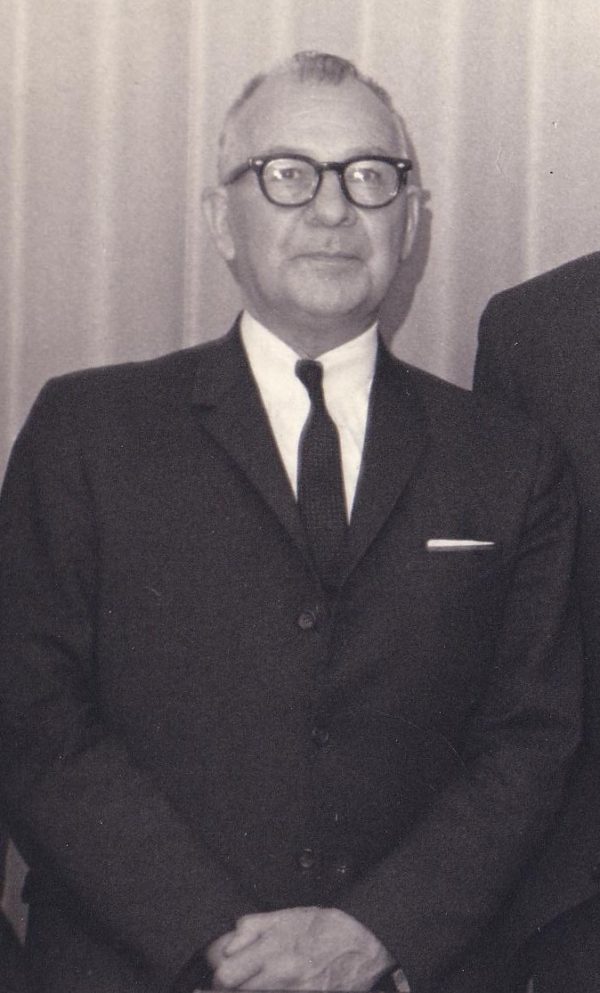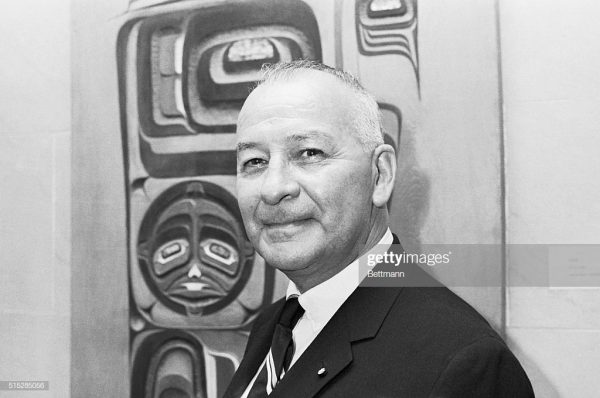Louis R. Bruce, Jr.
Louis R. Bruce, Jr., Gamma, 1930, Phi Alpha 1962-1964
Louis R. Bruce, Jr., Gamma, 1930, had a varied work career, but was always committed to Native American advocacy and Zeta Psi.

Brother Bruce was born on the Onondaga Reservation near Syracuse, where his father,
a Mohawk, practiced dentistry and his mother, an Oglala Sioux, raised the family. After
graduating from Syracuse, he operated a dairy farm, served as education and youth director of the Dairymen’s League Cooperative Association and worked in advertising and public relations in New York. From 1959 to 1961, he was special assistant commissioner for cooperative housing at the Federal Housing Administration in
Washington. Later, he was a public relations executive for a chain of cooperative supermarkets in New Jersey.
Throughout his life, Brother Bruce was dedicated to Native American advocacy. He served under several New York Governors as Director of Indian Affairs. He was President of the Six Nations Indian Association and one of the founders of the Native American Congress of America. He advised Presidents from Franklyn D. Roosevelt to
Ronald Reagan on Indian affairs.
From 1969 to 1973, he served as Commissioner of Indian Affairs and was fired by President Nixon after the six-day takeover of the Bureau of Indian Affairs Building by 500 Indian protesters. His years as Commissioner coincided with a period of increased activism, and Brother Bruce was said to have encouraged the young activists much to the displeasure of his superiors in the Department of Interior. Despite his dismissal, he was credited with hiring many Indians to head bureau offices and as an advocate for Indians’ civil rights.

Brother Bruce followed Brothers Lydecker and Motley serving as the Chief Operating Officer and Phi Alpha of Zeta Psi, although his term as Phi Alpha preceded the staff
position unlike Lydecker and Motley. As Phi Alpha, Brother Bruce focused on developing a more robust chapter expansion program and improving the fraternity’s academic performance, which was rated very low by the National Interfraternity Conference.
These were also the years of Williams College, being the first college, to force the end
of fraternities’ public presence there. As executive secretary from 1966-1969, “Louie”
as he preferred to be called, led the reestablishment of the Mu at Stanford and the
chartering of the Chi Gamma at the University of Calgary, Delta Chi at The American
University, the Tau Gamma at Purdue University and the Pi Kappa at Bloomsburg
University. These were difficult years, however, for fraternities with increased anti-war
and anti-establishment (and thereby anti-Greek) feelings on campus.
In 1969, Louie received Zeta Psi’s highest accolade, the Distinguished Service Award.
